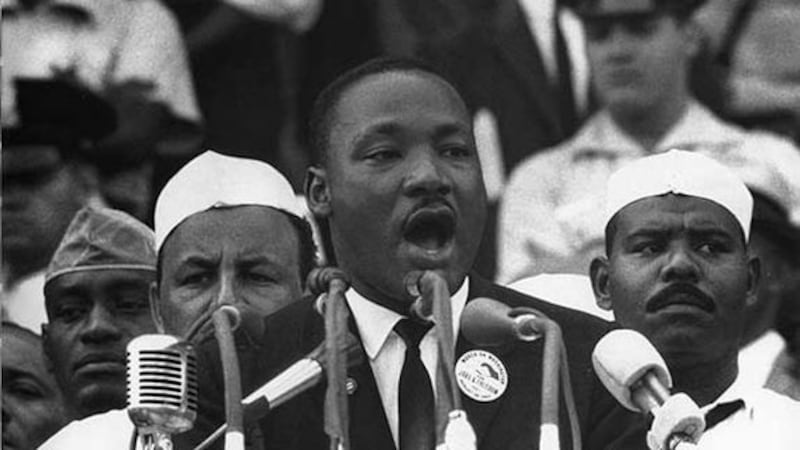Next time we design the world, we should build it only with round walls and circular shapes. That way, none of us could back ourselves – or push others - into corners.
Too many of life’s big problems – private and public, social or political - arise from attitudes and discourses focused on defining selfish power, rather than divining shared progress.
So why don’t we enter 2018 by starting to create a whole new ‘public circle’ instead of fighting over the old ‘public square’?
And why don’t we invent more dialogue that could open circles of trust and hope, rather than sustaining sharp corners of conflict and separation, in every sense – both class and creed?
Next Monday marks Dr Martin Luther King Jr Memorial Day in the US. And 2018 is the 50th anniversary of the assassination of both Dr King and Senator Bobby Kennedy.
Dr King famously said: “Darkness cannot drive out darkness; only light can do that. Hate cannot drive out hate; only love can do that.”
Dr King’s philosophy of love was not pious, passive or subservient. It was an active reform agenda predicated on the moral practice of equality and reconciliation between citizens.
He argued that non-violent political, community and legal action was absolutely necessary to promote basic civil rights in the US. But he also ensured that the goal of rights to bind relationships would rely on core values of mutual dignity, love and compassion.
In the hours after Dr King’s assassination on April 4, half a century ago, Senator Kennedy challenged the poison in US society and its body politic, saying: “We can make an effort, as Martin Luther King did, to understand, and to comprehend, and replace that violence, that stain of bloodshed that has spread across the land, with an effort to understand, compassion, and love… What we need in the United States… is love and wisdom, and compassion towards one another, and a feeling of justice towards those who still suffer…”
Senator Kennedy was shot dead in June, eight weeks later.
Yet the philosophy of humane love with genuine compassion was not lost to the tragedies of political history. It has been elevated again and again as a key component of dignified transformative leadership throughout the past 50 years.
Writing in 1994, South Africa’s president, Nelson Mandela, cited love as a primary restorative factor in the development of dignity and humanity following the horrors of apartheid: “No one is born hating another person because of the colour of his skin or his background or his religion. People must learn to hate, and if they can learn to hate, they can be taught to love, for love comes more naturally to the human heart than its opposite.”
All of the evidence is that empathetic love and compassion are key leadership components, particularly in healing societies with conflicts and promoting transformational social outcomes.
We all have flaws in our own personal and professional lives at different times. (Some of us more so.) And undoubtedly these global leaders who proclaimed love as a philosophy to underpin social and political progress were themselves far from perfect specimens or consistently principled actors.
And yet – other than religious or moral discussions (and some parts of the ‘change management’ business) – how often today do we hear public leaders placing a dialogue of love at the heart of discussions on future humanity? The answer is rarely, and its absence is particularly evident on this island.
Writing in this column almost two years ago (March 9, 2016), I commented: “In recent years across Ireland we’ve had senior elected politicians publicly referring to other citizens with the a-word, the b-word, the c-word, and much more. An alphabet of abuse. And those are just milestones of crumbling practices and fracturing ethics. (…) It’s worth remembering comments by former US president, John F Kennedy, who said that the worst advice he received always seemed to come ‘from those who feared that to be sensible made them seem soft and unheroic’.”
If all of these historically transformative leaders could – with their many deep human imperfections and ideological contradictions– conceive of similar philosophies (even rhetorically) based around love for humanity, then what are the rest of us doing and saying in that regard?
Dialogues of love for humanity have nothing to do with being pure or pious, but everything to do with building social progress. We should all start to work harder at them in 2018, transforming the ‘public circle’ into a new forum of meaningful dignity.
In the words of Eleanor Roosevelt: “The giving of love is an education in itself.”








